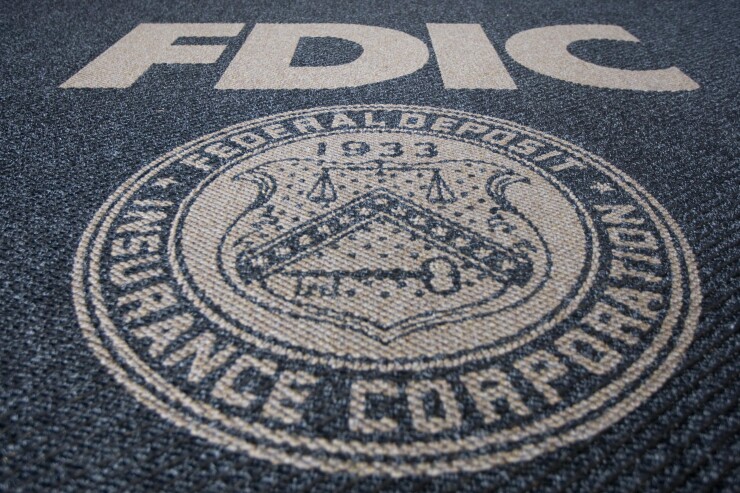WASHINGTON — The Federal Deposit Insurance Corp. released guidelines designed to assist nonbanks and agency staff in understanding the de novo application process for nontraditional bank organizers.
The FDIC on Monday released three new materials: a manual supplement for nontraditional bank applicants, a separate supplement for officials who review applications and a summary of changes to the agency's overarching guide for deposit insurance applications.
The documents urge regulators to keep an open mind when reviewing uncommon banking structures while offering firms that want to charter a bank a slew of recommendations, including that organizers should contact regulators as early in the process as possible.

"The FDIC is committed to working with, and providing support to, any group with an interest in starting a de novo institution," the agency wrote in one of the new manuals. "New institutions with sound business plans, experienced leadership at the board and management levels, and appropriate capital support can play a vital role in serving the deposit and credit needs of their communities."
"The FDIC is committed to working with, and providing support to, any group with an interest in starting a de novo institution," the agency wrote in one of the new manuals.
The new guidelines come as fintech firms and other nontraditional players look toward bank charters such as the industrial loan company, trust banks and other niche structures as an entry to the mainstream financial services system.
Fintech applicants, which must get approval from the FDIC to receive deposit insurance, have struggled to gain regulatory permission to charter a bank. For example, numerous tech-forward firms applying for ILC charters have been in limbo waiting for the FDIC to rule.
But the release of the new manuals coincided with the
According to the FDIC, the supplements do not feature any new guidance or policy and instead focus on clarifying existing processes.
Notably, the new manuals also cover the application process for banks owned by states or municipalities. Once considered an anomaly, public banks have gained currency in recent months, with
The supplements distinguish between two basic types of nontraditional applications: “non-banks” and “non-community banks.” According to the new manuals, a "non-bank" is any institution not owned by a parent company that would be subject to the Bank Holding Company Act.
Alternatively, a non-community bank is an institution that lacks a focus on local lending; pursues a “monoline, limited, or specialty business model”; or an institution whose business model has a heavy focus on third-party relationships or affiliate services.
In the materials for FDIC staff, the agency said it “generally imposes non-standard conditions specific to the unique nature of these institutions in approving an application for a proposed non-bank or non-community bank.”
But the FDIC also said its regulators should be aware that deposit insurance applications for non-traditional IDIs “may require more detailed descriptive information, support, and analysis” and that staff would need to “develop an understanding of any unusual complexities, the types and degree of risks presented, and any mitigating information” on a case-by-case basis.





